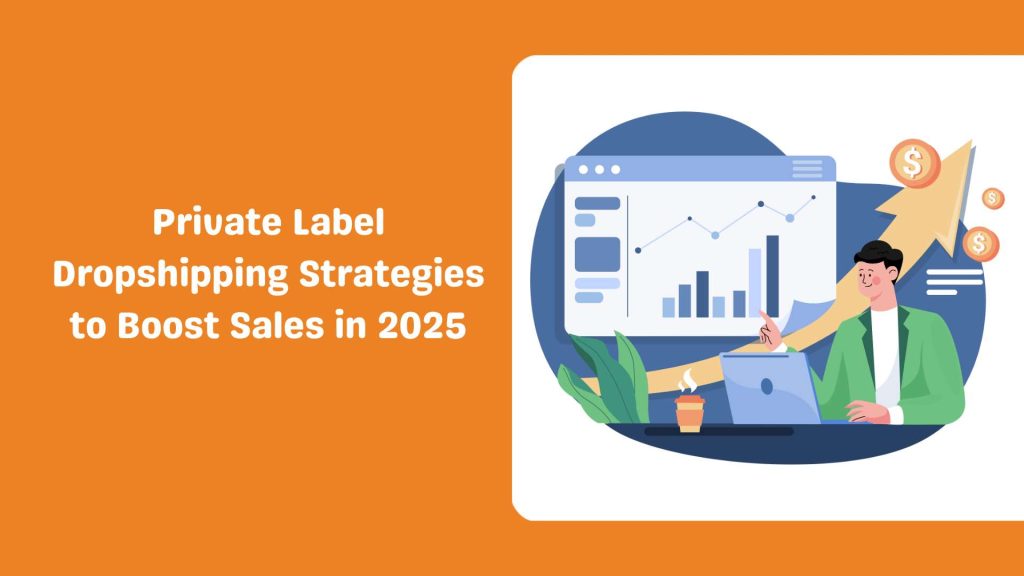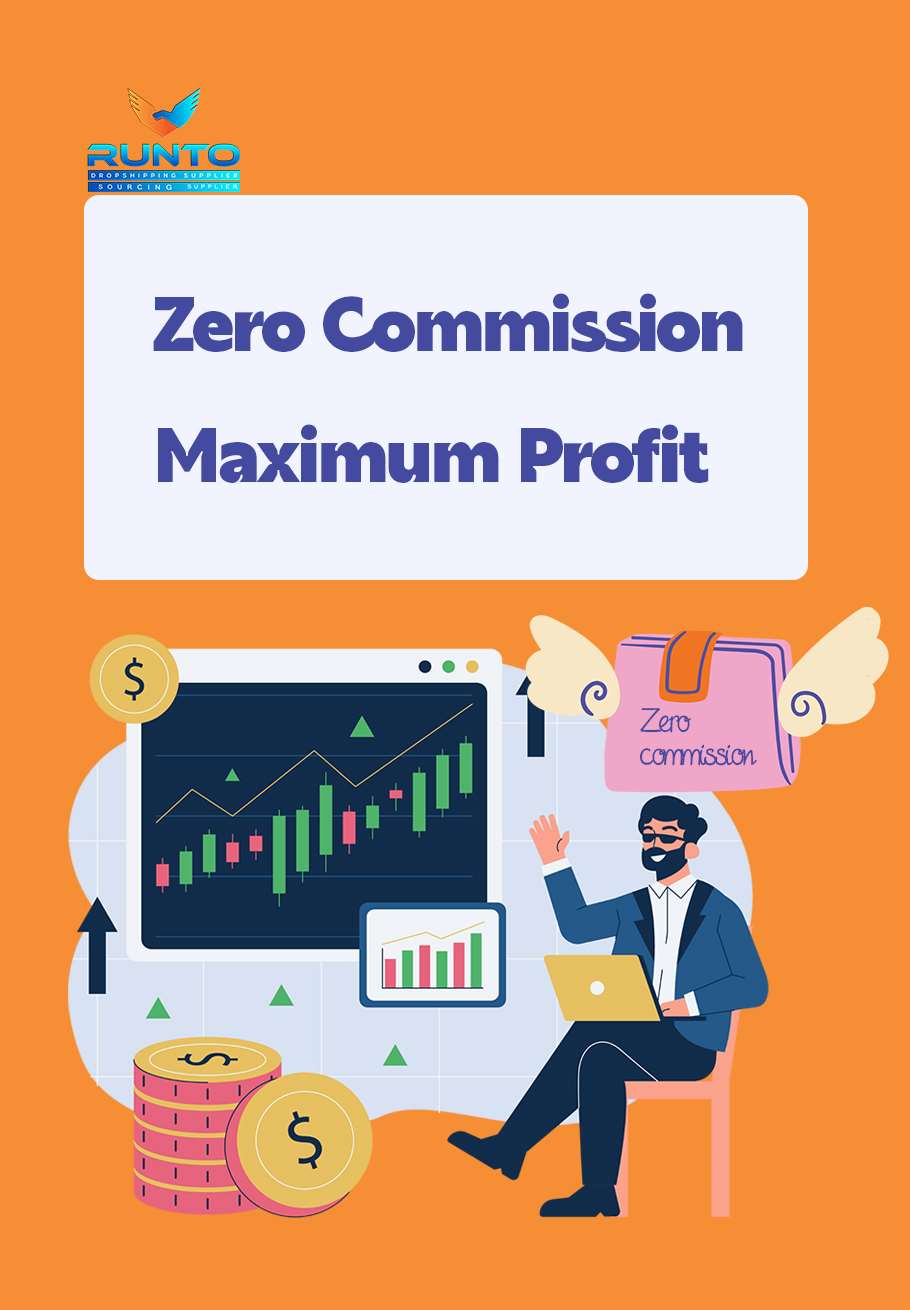In today’s competitive e-commerce landscape, mastering private label dropshipping is essential for businesses aiming to thrive and boost their sales. This article explores the various strategies that can enhance your private label dropshipping business in 2025. We will delve into its workings, advantages, challenges, and effective practices for choosing products and suppliers. Furthermore, we will discuss branding and marketing strategies aimed at elevating your brand. By the end of this article, you will be equipped with the knowledge and tools necessary to enhance your private label dropshipping experience significantly.
What is Private Label Dropshipping and Why is it Trending in 2025?

Let’s kick things off by defining what private label dropshipping really means. Essentially, this model allows businesses to sell products created by another manufacturer under their brand name. Imagine having your logo on a product that you didn’t have to manufacture yourself. This flexibility is what makes private label dropshipping increasingly popular among entrepreneurs and established businesses alike, making it a significant trend in 2025.
What’s the real story? As the market evolves, consumers are increasingly attracted to brands that offer unique products. This shift drives businesses to adopt private label dropshipping to meet consumer demands without the challenges associated with inventory management and manufacturing. The landscape is filled with opportunities for brands that can offer customized and exclusive products. According to recent data from Statista, the private label market is expected to grow substantially, reflecting shifting consumer preferences towards unique and branded products over generic ones.
To paint a clearer picture, let’s examine the distinct differences between private label dropshipping and traditional dropshipping. In traditional dropshipping, retailers market and sell generic products sourced directly from a wholesaler. In contrast, private label dropshipping focuses on branding products, creating a unique identity that resonates with consumers. This not only allows for better profit margins but also enhances brand loyalty.
Now, let’s delve deeper into the complexities involved in private label dropshipping and the key factors driving its popularity.
| Aspect | Private Label Dropshipping | Traditional Dropshipping |
|---|---|---|
| Control Over Branding | High | Low |
| Profit Margins | Higher | Lower |
| Product Uniqueness | High | Generic |
| Customer Loyalty Potential | High | Average |
| Marketing Flexibility | Extensive | Limited |
How Does Private Label Dropshipping Work?
The private label business model allows entrepreneurs to sell custom-branded products without managing manufacturing or inventory themselves.Understanding how private label dropshipping works is crucial for anyone looking to succeed in this field. The process begins when a retailer identifies a product to sell under their brand. Once selected, they collaborate with a manufacturer or supplier who produces and ships the product directly to customers. This means the retailer never needs to handle the product physically, allowing them to focus on marketing and brand development.
Ready for the good part? Let’s look at the typical steps involved in private label dropshipping. First, retailers conduct market research to identify trending products. Tools like Google Trends and market analysis software can help here. Next, they will choose a reliable supplier, ensuring their offerings meet quality standards. After establishing relationships with manufacturers, retailers can design custom packaging and branding elements that align with their brand identity.
Once products are sourced and branded, retailers set up their online stores, often using platforms like Shopify or WooCommerce. These platforms offer user-friendly interfaces that simplify the selling process. The next step is marketing the products through various channels, using strategies like social media advertising, influencer partnerships, and email marketing to drive traffic to their online store. Finally, sales orders are processed through the supplier, who handles shipping directly to the customer.
To further illustrate this process, here’s a flowchart summarizing the steps involved:
| Step | Description |
|---|---|
| Product Research | Identify trending products |
| Supplier Selection | Choose reliable manufacturers |
| Branding | Create custom packaging and logos |
| Store Setup | Utilize e-commerce platforms like Shopify |
| Marketing | Use social media, email campaigns, and ads |
| Order Fulfillment | Suppliers handle shipping directly to customers |
What Benefits Does Private Label Dropshipping Offer?

Private label dropshipping offers numerous benefits that can significantly impact your bottom line. For starters, businesses can enjoy increased profit margins. Unlike generic products, which often compete on price, private label products allow retailers to set their prices and cater specifically to targeted audiences. This flexibility enables brands to operate with better profitability.
This is where it gets interesting… Another advantage lies in the control over branding. By creating unique labels and packaging, businesses can establish a particular identity that differentiates them from competitors. This helps foster customer loyalty, as consumers are more likely to return to brands that resonate with their values and preferences.
Furthermore, private label dropshipping allows for quicker product launches. Retailers can develop and introduce new products faster than businesses that manage manufacturing. This nature of flexibility ensures that private label brands can quickly adapt to market trends. Moreover, it allows them to diversify their product offerings without significant risk.
Let’s summarize the benefits of private label dropshipping in the table below:
| Benefit | Description |
|---|---|
| Higher Profit Margins | Ability to set premium prices due to unique branding |
| Brand Control | Full control over product branding and marketing |
| Faster Market Response | Quick introduction of new products |
| Customer Loyalty | Stronger brand identity fosters repeat purchases |
| Reduced Inventory Hassles | No need to hold stock, reducing overhead costs |
What Challenges Can You Face with Private Label Dropshipping and How to Overcome Them?
While private label dropshipping presents numerous advantages, it’s crucial to recognize and address its challenges. For one, there’s an initial investment that can be significant depending on product selection and branding efforts. This may deter some potential entrepreneurs from entering the field.
Starting with affordable private label products is a smart way to reduce initial investment risk while testing product-market fit.
But here’s the kicker… Quality control poses another challenge. When sourcing products from suppliers, businesses often rely on the manufacturer to maintain quality standards. Issues such as defective items or inconsistencies in product quality can harm a brand’s reputation. Therefore, performing rigorous due diligence when selecting suppliers is crucial. Establishing clear quality standards and maintaining open communication with suppliers can help mitigate these risks.
Furthermore, managing shipping and fulfillment complexities can be challenging. Delays in shipping can occur, which may frustrate customers and lead to negative reviews. Retailers must have a solid logistics strategy and maintain good relationships with suppliers to avoid such pitfalls.
Working with fulfillment providers like Runtoagent who offer integrated warehousing and fulfillment services can significantly reduce your logistics risks.
Here’s a table outlining common challenges and strategies to overcome them:
| Challenge | Description | Solution |
|---|---|---|
| Initial Investment | High upfront costs for product development | Start small and reinvest profits |
| Quality Control | Risks tied to product quality from suppliers | Thoroughly vet suppliers and establish standards |
| Shipping Delays | Potential delays can affect customer satisfaction | Use reliable logistics partners |
| Branding Costs | Expenses related to custom branding and packaging | Gradually build your brand over time |
| Market Saturation | Increased competition can dilute profitability | Identify niche markets |
How to Choose the Right Products for Private Label Dropshipping?
Selecting the right products is critical for any private label dropshipping business. The first step involves thorough market research to identify trending products that have a viable demand. Utilizing tools like Google Trends, Amazon Best Sellers, and niche analysis platforms can aid in uncovering potential opportunities.
What’s the real story? It’s essential to not only choose products that are currently popular but also consider timeless commodities that cater to ongoing needs. Health, beauty, and fitness products, for example, consistently see demand, making them excellent candidates for private label dropshipping.
Once you’ve identified promising product ideas, validating them is paramount. Engaging with potential customers through surveys, social media polls, and feedback platforms can provide valuable insights into consumer preferences. Additionally, you should always look at the competition: are similar products successful, and what unique value can you offer to set your product apart?
Here’s a table highlighting key factors to consider when choosing products:
| Factor | Description |
|---|---|
| Market Demand | Identify trending and consistent product categories |
| Competition Analysis | Assess existing products and highlight unique features |
| Profitability | Calculate potential profit margins |
| Customer Feedback | Engage with potential users to gather insights |
| Stock Availability | Verify suppliers have the ability to meet potential demand |
How to Find Reliable Private Label Suppliers?

Finding reliable private label suppliers is perhaps one of the most crucial steps in establishing a successful dropshipping business. A trustworthy supplier can make or break your brand’s reputation, so it is essential to conduct thorough research and due diligence.
Ready for the good part? Begin your search on well-known platforms like Alibaba, ThomasNet, or industry-specific directories such as Maker’s Row. Here, you can find a variety of manufacturers who offer private label services. However, while these platforms provide extensive options, it’s vital to verify the suppliers’ credentials. Read reviews, check quality certifications, and request samples to evaluate product quality.
Moreover, working with a sourcing agent can facilitate this process greatly. A sourcing agent who is familiar with the industry and has connections can help streamline communication and select suppliers that align with your brand requirements. Establishing a relationship with your supplier is also key: regular communication can help ensure your brand’s needs are met efficiently and timely.
For a more streamlined approach, sourcing agents like private label supplier in China Runtoagent can help you find verified suppliers in China, manage communication, and ensure product quality.
Here’s a summary table of tips for finding quality private label suppliers:
| Tip | Description |
|---|---|
| Research Thoroughly | Use platforms like Alibaba and ThomasNet |
| Verify Credentials | Check reviews and quality certifications |
| Request Samples | Always ensure product quality before committing |
| Build Relationships | Regular communication fosters trust and reliability |
| Consider Sourcing Agents | They can simplify the process and enhance supplier selection |
What Should You Consider When Creating Your Brand?

Branding is a vital component of private label dropshipping. It establishes the identity of your company and dictates how consumers perceive your products. Well-executed branding can differentiate your products in a crowded market and attract diverse customer bases.Knowing how to brand your own products effectively is the cornerstone of building long-term customer relationships in dropshipping.
This is where it gets interesting… Start by defining your target audience. Understanding who they are, their values, and what they seek from your products will guide your branding efforts. Next, designing custom packaging can significantly augment brand perception. Eye-catching, well-designed packaging not only catches attention but also enhances the unboxing experience for customers.
As highlighted in a Shopify blog, building a brand around private label products helps establish trust and improves long-term retention.
Additionally, creating a compelling brand story is essential. Share your journey, mission, and the values that drive your brand. This narrative can help connect with consumers on an emotional level, fostering loyalty and encouraging repeat purchases.
Here are some effective branding strategies to consider:
| Strategy | Description |
|---|---|
| Target Audience Analysis | Understand who your customers are and what they want |
| Custom Packaging Design | Develop packaging that represents your brand identity |
| Compelling Brand Story | Craft a story that resonates with consumers |
| Consistent Messaging | Maintain cohesion in all brand communications |
| Strong Online Presence | Utilize social media and content marketing effectively |
How to Optimize Your Online Store for Private Label Products?
To ensure the success of your private label dropshipping business, optimizing your online store is paramount. A well-structured online store enhances user experience and significantly influences conversion rates.
But here’s the kicker… A user-friendly design is essential. Simple navigation, clear product categories, and visually appealing layouts can make it easier for consumers to find what they are looking for. High-quality product images and detailed descriptions are also vital for converting visitors into buyers. Always ensure that your product listings are informative, highlighting unique features and benefits.
SEO is key to driving organic traffic to your store. By incorporating relevant keywords such as “private label dropshipping,” “custom packaging,” and “private label suppliers,” you can enhance your visibility on search engines. Employing conversion rate optimization (CRO) techniques, such as A/B testing and personalized recommendations, can further boost sales and customer engagement.
Moreover, consider offering customer reviews and testimonials to build credibility. Customers are often swayed by the opinions of others, and featuring authentic reviews can enhance trust.
Here’s a table summarizing key optimization strategies:
| Strategy | Description |
|---|---|
| User-Friendly Design | Ensure easy navigation with clear categories |
| High-Quality Visuals | Use professional images and videos |
| Detailed Product Descriptions | Provide comprehensive information about products |
| SEO Best Practices | Utilize relevant keywords throughout product listings |
| Customer Testimonials | Display reviews to build trust and credibility |
What Marketing Strategies are Effective for Private Label Dropshipping?
Effective marketing strategies are crucial for driving traffic and sales in your private label dropshipping business. With a multitude of options available, identifying the right approaches can be overwhelming.
What’s the real story? A robust digital marketing plan is a must. Begin with social media platforms; sites like Instagram and Facebook are excellent for showcasing visually appealing products. Invest in targeted ads that cater to your specific demographic to maximize reach and engagement. Collaborations with influencers can also amplify your brand’s visibility and credibility.
Email marketing is another powerful tool that can drive customer retention. Building an email list allows you to communicate with your audience directly, nurturing leads and promoting new products or special offers. Make sure to segment your audience for personalized messaging, which can lead to higher engagement and conversion rates.
Additionally, engaging in omnichannel marketing—offering a consistent experience across all platforms—can significantly improve brand recognition. This approach helps in ensuring that no matter where customers encounter your brand, they receive a cohesive message and feel connected to your identity.
Here’s a table summarizing effective marketing strategies:
| Strategy | Description |
|---|---|
| Social Media Advertising | Use platforms like Instagram and Facebook for visibility |
| Influencer Collaborations | Partner with influencers to reach broader audiences |
| Email Marketing | Build and segment an email list for targeted campaigns |
| Omnichannel Marketing | Provide cohesive experiences across all platforms |
| Content Marketing | Create valuable content to establish authority |
How Can You Scale Your Private Label Dropshipping Business?
Once your private label dropshipping business is established, scaling it becomes the next logical step. To do so, you need to identify new market opportunities. Ready for the good part? Conduct thorough research to explore potential niches where your products can thrive. This may involve expanding your product lines or introducing complementary products that align with your brand’s identity.
Using the right dropshipping automation tools like DSers or AutoDS can simplify order fulfillment and accelerate business growth. These tools work best when paired with a reliable private label supplier in China like Runtoagent, who handles sourcing, customization, and logistics while you focus on scaling.Automation tools can also play a significant role in scaling your business. Adopting private label automation tools like AutoDS or DSers can streamline processes such as order management, inventory tracking, and customer communication. This not only saves time but also minimizes the risk of errors, allowing you to focus on growth.
Another effective strategy is hiring virtual assistants (VAs) to manage day-to-day tasks. They can assist in areas like customer service, social media management, and inventory management, freeing you up to concentrate on strategic decisions.
Here’s a summary table of scaling strategies:
| Strategy | Description |
|---|---|
| Market Research | Identify and explore new niches suitable for growth |
| Product Line Expansion | Introduce new or complementary products |
| Use of Automation Tools | Streamline processes with tools like AutoDS |
| Hire Virtual Assistants | Delegate operations to focus on scaling |
| Customer Diversification | Expand your target audience and tap into new demographics |
What Are the Future Trends in Private Label Dropshipping?

The future of private label dropshipping looks promising, with numerous trends emerging that will shape the industry in the coming years. This is where it gets interesting… One key trend is the growing demand for sustainable private label products. As consumer awareness around environmental issues rises, brands that prioritize sustainability in their products and packaging will have a competitive edge.
Additionally, the rise of voice commerce presents a unique opportunity for private label businesses. With the increasing popularity of smart speakers and voice assistants, adjusting your marketing strategy to accommodate voice searches and purchasing can yield substantial results. This shift towards hands-free shopping means optimizing your product listings for voice search capabilities.
Here’s a table summarizing key future trends:
| Trend | Description |
|---|---|
| Sustainable Products | Growing demand for eco-friendly options |
| Voice Commerce | Adapting strategies for voice search optimization |
| Personalization | Increasing consumer preference for tailored experiences |
| E-commerce Integration | The convergence of various online channels |
| Subscription Models | Rise of subscription-based purchasing options |
Conclusion
As we see, private label dropshipping offers an excellent opportunity for anyone looking to build their brand and increase profit margins effectively. By understanding how this business model works, and with strategic product selection and reliable suppliers, you can lay a solid foundation for success. Moreover, employing effective marketing strategies and staying attuned to industry trends will ensure that your business remains competitive in 2025 and beyond. So, are you ready to take the plunge and elevate your private label dropshipping business?
FAQ Section
Q1: What is private label vs white label?
Private label refers to products manufactured by one company that are sold under another company’s brand, while white label products are produced for several different companies, allowing them to brand and sell the same item as their own.
Q2: Is private label dropshipping profitable in 2025?
Yes, with the right market analysis and strategic branding, private label dropshipping can offer substantial profit margins, particularly in trending niches and categories.
Q3: What platforms are best for private label dropshipping?
Popular platforms for private label dropshipping include Shopify, WooCommerce, and Wix, as they provide the necessary tools for eCommerce management and product listing optimization.
Q4: How long does private label dropshipping take to launch?
Launching a private label dropshipping business typically requires 1-3 months, depending on factors like product sourcing, branding, and setting up your online store.
Q5: Can I private label products with no MOQ?
Yes, some suppliers and platforms allow for low minimum order quantities (MOQs), enabling entrepreneurs to start private label dropshipping without large upfront investments.
Ready to launch your private label brand with expert help? Contact Runtoagent and start private label dropshipping journey today.


